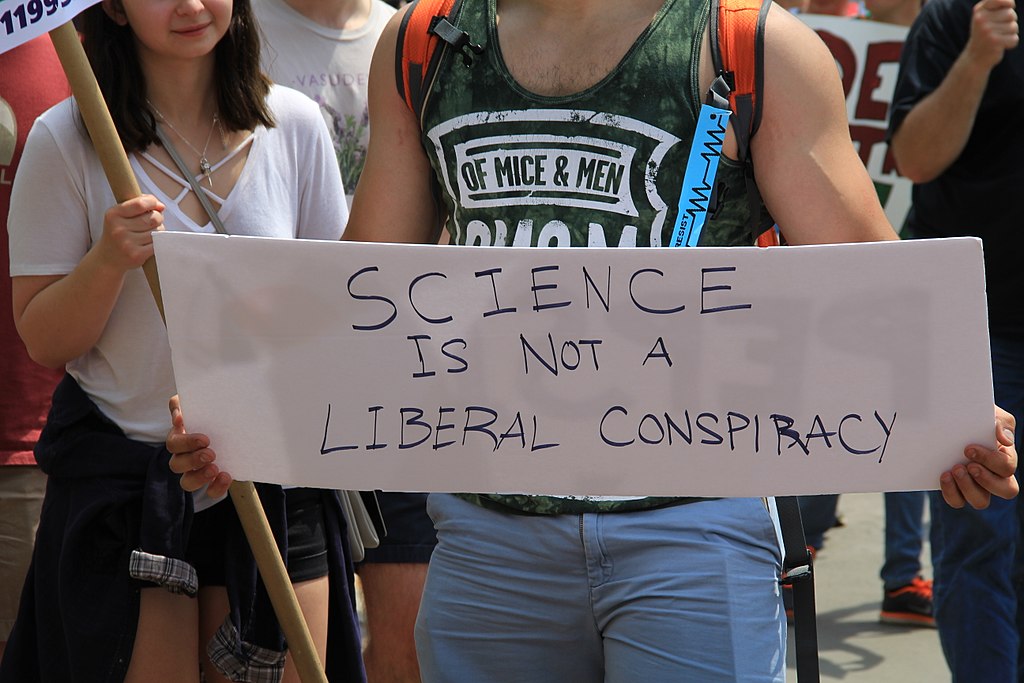This is a guest post by ClimateDenierRoundup.
A new study in the AMS journal Weather, Climate and Society suggests that there’s an interesting way to soften denier rejection of the consensus on climate change: validate their conspiracy theories.
The approach outlined in the study is pretty simple. The researchers asked nearly 500 people to what extent they agreed with the sentiment that climate change is a hoax or conspiracy, along with a few other simple questions, like their political orientation. Then they gave respondents information about the consensus on climate change.
But before the consensus message was delivered, the test subjects were also told that “a majority of people acknowledge that on many topics, powerful people work to mislead citizens for bad purposes. Yet human induced climate change is not one of those topics.”
Finally, people were asked to what extent they think climate change is caused by humans, as opposed to being a natural phenomenon. Researchers also asked if respondents would be interested in hearing more information about human-induced climate change.
The hoax believers shown the statement that conspiracies exist then became more accepting of human causation than those conspiracy theorists who weren’t shown the reaffirming statement.
On its face, it’s a counterintuitive finding. How does validating conspiracies make people less likely to embrace them? The study doesn’t delve into the psychology, but does suggest that offering that reassurance that sometimes conspiracies exist may make respondents “feel less motivated to defend their prior belief or worldview and be more open to consensus scientific information.”
This hypothesis does make some sense. We know that denial is a psychological defense mechanism that’s triggered by unwanted information. By indulging people’s natural skepticism and understanding that not all those with power use it for good, we can perhaps offer a bit of preemptive comfort before delivering the consensus message.
In other words, conspiracy theorists/climate deniers may gain intellectual flexibility from feeling like they’re in a safe space rather than under attack. The acknowledgement that that yes, conspiracies exist but no, climate change isn’t one of them, perhaps functions like something of an olive branch. It’s recognition that it’s not totally insane to think that perhaps a group is lying about the climate for their own gain.
Because, to be fair, that is definitely a thing that happens …
Main image: A sign from the 2017 People’s Climate March in Washington, D.C. Credit: Dcpeopleandeventsof2017, CC BY–SA 4.0
Subscribe to our newsletter
Stay up to date with DeSmog news and alerts







